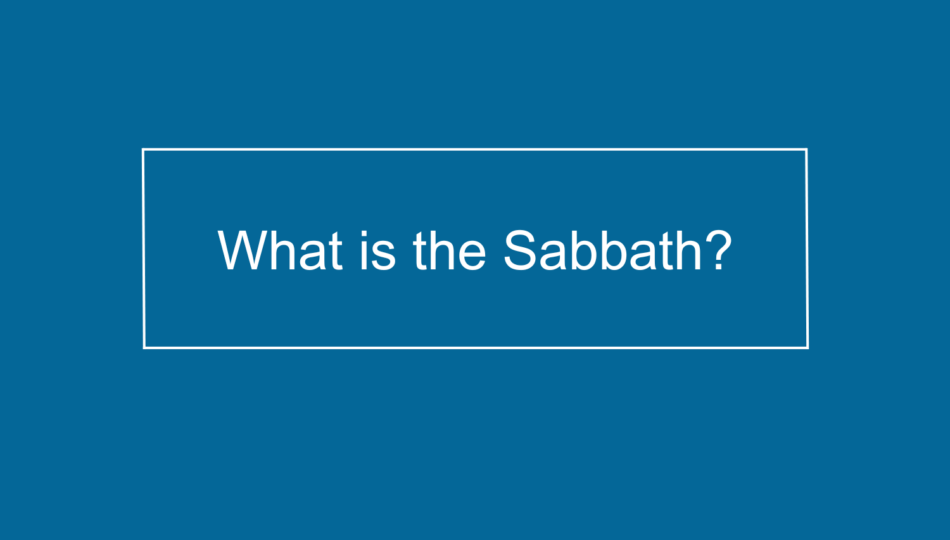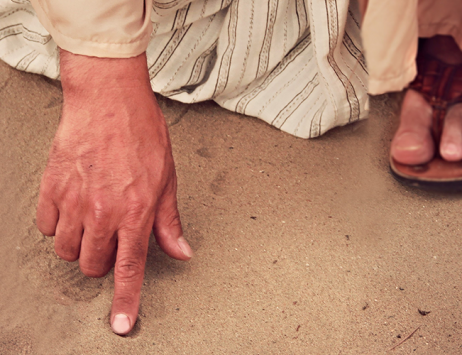Summary:
- God’s “rest” on the seventh day was not due to weariness but served as a divine model for humanity, illustrating the sanctity of taking a day of rest.
- The essence of the Sabbath emphasizes the act of pausing from daily work and occupations, directing attention towards worship and recognition of God’s ongoing role in creation.
- Observing the Sabbath is rooted in the balance between rest and worship, in line with Jesus’s teaching that highlights the Sabbath’s purpose of serving human well-being and spiritual freedom.
When God “rested on the seventh day from all his work which He had done (Genesis 2:2), He was modeling for humanity His intention for a weekly day of rest. Clearly, He did this for the sake of Adam and Eve (and for us), because God Himself does not tire or need to rest, as people do. In what sense, then, did He “rest” from His labors, and in what sense should we “rest” from ours?
What Does Sabbath Mean?
The noun “shabbaton” has the abstract ending on it: “resting, ceasing.” The root word means “cease” from something, more than “to rest.” The Law would make it clear that they were to cease from their normal occupations and do no common work.
The term Sabbath has the root meaning of “cessation.” On the seventh day, God ceased His work of creating the world (Ex. 20:8-11). However, He did not cease His work of sustaining and maintaining the world. This distinction helps to clarify the significance of the Sabbath, a day which God set aside (or sanctified) and blessed. His clear intention was that people would emulate Him by pausing from their labors – the exercise of their dominion over the creation (Genesis 1:28-31) – for one day out of seven.
The Sabbath is for Worshiping God
Was this day of rest given merely as a day off? No, one of the most important purposes of the Sabbath was to provide a day for believers to worship and focus on God, as individuals and communities (Isaiah 58:13-14). It is not that we are free to ignore God on the other six days; every day belongs to Him. But by designating one day as a special opportunity to come before the Lord, we demonstrate our dependence on Him as Creator and our obedience to Him as Lord.
This means that the Sabbath was not intended simply as a day off to catch up on chores or pursue leisure activities. Not that these are wrong, but the point of the day is to “stir up love and good works, not forsaking the assembling of ourselves together, as is the manner of some, but exhorting one another (Hebrews 10:24-25).”
The Sabbath is for People
There is an obvious tension here regarding how we should treat the Sabbath as a Christian. In deciding the issue, it is worth remembering that Jesus pointed out that God established a day of rest for the sake of people, not the other way around (Mark 2:27). Sabbath observance is not to become a legalistic obligation. In fact, conditions occasionally require work on the Sabbath: an ox can get stuck in a ditch, and must be gotten out (Luke 14:5). Likewise human beings have basic needs even on Sundays. Of course, the spirit of Sabbath observance implies that we should take steps to prevent finding ourselves routinely stuck in the ditch with the ox on the Sabbath, and that we use our abilities on the other six days to meet the needs of people.
When God rested on the seventh day and set it aside, He did not intend to turn Sabbath-keeping into a strangling rule. The Sabbath was meant to provide true freedom – freedom from turning work into tyranny, and freedom to enjoy fellowship with God, our neighbors, and our loved ones.
Jesus and The Sabbath
Jesus emphasized that divine institutions on Earth are to have a God-honoring, noble, and liberating function. The Sabbath regulations that emerged over the centuries were largely designed to provide clarity on how individuals were to observe the Sabbath. For the most part, however, they had become burdensome. As each of the synoptic writers record, Jesus concluded His discussion on the Sabbath by asserting His authority with the emphatic statement “the son of man is also Lord of the Sabbath.”
############
Content in this article is taken from the NKJV Study Bible – Click here to learn more
Content in this article is taken from the NET, Full Notes Edition – Click here to learn more
Content in this article is taken from the Evangelical Study Bible – Click here to learn more







9 replies on “What is the Sabbath?”
Thank you for the beautiful article. I have a question: how did the writer jump from the Sabbath being the seventh day, which God Himself set aside at Creation, to Sunday, the first day of the week?
We have historical documentation that the change happened by the “authority” of the Roman Catholic Church (A Doctrinal Catechism, by Rev. Stephan Keenan, pages 174, 351-355).
Can you show from Scripture where Sunday is the Sabbath? The Sabbath is the seventh day, Sunday is the first day of the week..
I am a bit confused about this article, please can you clarify if the Sabbath is on a Sunday or Saturday. Thank you.
Isn’t the Sabbath on Saturday?
Hello, I truly enjoyed the message regarding the sabbath. I just wanted clarification on the resting on the seventh day, does this mean the sabbath is on Saturday? Thank you and May God bless you.
I love this learson
Sunday worship is not the sabbath as Sunday is the 1 day of the week. Jesus rose on the first day of the week. He set an example for us by resting in the grave on the sabbath. Are we observing the true sabbath or have we followed mankind in observing Sunday worship.
I need the bible ampled
The observance of “Sabbath” on Sunday is almost universal in Christian churches. This does not make it equal with the True Sabbath – which is Saturday, the 7th day of the week.
In the early centuries after Jesus, there were several compromises in the church. Pagan concepts crept in. Anti-semitism developed and increased. By the time that Emperor Constantine became a Christian, Sunday observance was gaining popularity.
Roman Catholic documents clearly state that the church took upon itself the authority to make the change. This made Christianity more “palatable” to the masses.
If there was any doubt about which day is Sabbath, ask our Jewish friends. They have kept the Sabbath since Moses. Remember the giving of Manna to eat. It came on days 1 to 6, but none on the 7th. This was a little while before God spoke the Ten Commandments. But it is safe to say that from the time of Adam and Eve, the Sabbath had always been observed on the seventh day. Jesus attended the synagogue on the Sabbath “as His custom was”. None of this was meant to be legalistic, but simply a worshipful acknowledgement of God’s creative power and love for all mankind. No where, from Genesis to Revelation, will you find any mention of the change in the day of worship.
As we are nearer than ever to Jesus’ Second Coming, He appeals to every one of us to, “Worship God who created all things and to keep His Commandments”. God is offering eternal life to everyone who believes. (John 3:16)